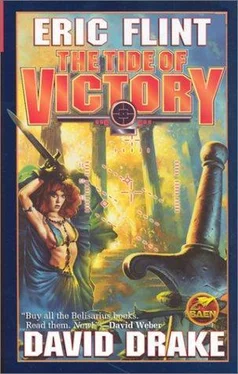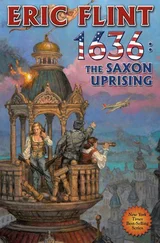Eric Flint - The tide of victory
Здесь есть возможность читать онлайн «Eric Flint - The tide of victory» весь текст электронной книги совершенно бесплатно (целиком полную версию без сокращений). В некоторых случаях можно слушать аудио, скачать через торрент в формате fb2 и присутствует краткое содержание. Жанр: Альтернативная история, на английском языке. Описание произведения, (предисловие) а так же отзывы посетителей доступны на портале библиотеки ЛибКат.
- Название:The tide of victory
- Автор:
- Жанр:
- Год:неизвестен
- ISBN:нет данных
- Рейтинг книги:3 / 5. Голосов: 1
-
Избранное:Добавить в избранное
- Отзывы:
-
Ваша оценка:
- 60
- 1
- 2
- 3
- 4
- 5
The tide of victory: краткое содержание, описание и аннотация
Предлагаем к чтению аннотацию, описание, краткое содержание или предисловие (зависит от того, что написал сам автор книги «The tide of victory»). Если вы не нашли необходимую информацию о книге — напишите в комментариях, мы постараемся отыскать её.
The tide of victory — читать онлайн бесплатно полную книгу (весь текст) целиком
Ниже представлен текст книги, разбитый по страницам. Система сохранения места последней прочитанной страницы, позволяет с удобством читать онлайн бесплатно книгу «The tide of victory», без необходимости каждый раз заново искать на чём Вы остановились. Поставьте закладку, и сможете в любой момент перейти на страницу, на которой закончили чтение.
Интервал:
Закладка:
He stared down at the map spread across a table. The map showed the location of every one of the outlying forts, as well as the camps where Sittas and his armored cavalry were lying in wait. Like tigers, ready to spring from ambush. The outer lines had been designed for that purpose. In effect, they channeled the Malwa troops away from the fortresses into four areas which were tailor-made for cataphract tactics. The most solid ground in the area, cleared of obstructions, with nowhere to take cover.
"Give the order," he said. "Tomorrow morning, let's finish this."
The biggest problem Menander faced as they neared the fork of the Chenab was restraining himself from engaging enemy forces on shore in a series of pointless gun duels. During the daytime, Malwa dragoons were constantly peppering the Roman flotilla as it made its way upriver. Menander was keeping the Justinian and its barges as far from the west bank as possible, while still avoiding the danger of hidden sandbars. But even at that range, a number of the Malwa shots struck his ship. The Roman vessel, with its heavy load of barges, was moving very slowly. It was for all practical purposes a stationary target.
Granted, the shots were more in the way of a nuisance than an actual danger. Especially since, so far as Menander could determine, the Malwa were firing simple muskets instead of the equivalent of the Sharps breech-loading rifle with which Belisarius had equipped his own dragoons.
Justinian had designed his namesake to fight pitched battles at sea, with little concern for speed. Something which John of Rhodes, in times past, had criticized sourly-though not within earshot of the former emperor. Like most naval men, John had prized speed and maneuverability over all else. But, as things had turned out, Justinian's decision was working to Roman advantage. Speed and maneuverability were not as important as sheer strength of armor and firepower in the close and cramped quarters of river battles. And while the only iron armor on Menander's warship was the plating which protected the pilot house and the Puckle guns, the Justinian was what later ages would call a "wood-clad"-a ship whose hull was so thick that most round shot could not penetrate, much less musket fire. Moreover, it was heavy and sturdy enough to carry heavy guns which could overpower any kind of easily maneuvered land-based field artillery. So the Malwa dragoons posed no real threat at all.
Still. it was annoying !
But, he restrained himself. The dragoons made poor targets anyway, and gunpowder was too precious to waste on volleys fired out of temper rather than necessity, the more so now that the barge which carried most of the powder had been sunk.
Still. it was so annoying!
Only once did he fire a broadside. That was on an occasion where the Justinian 's engine had to be shut down for repairs. Eusebius and the Victrix- whose own engine, for whatever reason, was proving a lot more reliable than the Justinian 's-attached themselves to Menander's warship with a cable. The paddle wheeler was not powerful enough to tow the entire flotilla on its own, but it could keep the Roman ships from drifting downstream out of control.
The delay gave the Malwa enough time to bring up a small battery of three-pounders, five in all, which they began positioning on a small promontory within range of the Roman flotilla. Alas, the promontory was also within range of the Justinian 's much heavier guns. Eusebius had to tow the bow of Menander's warship around in order to bring the guns to bear. But, thereafter, two broadsides with Menander's thirty-two-pounder carronades were enough to destroy the little field guns and send the surviving Malwa artillerymen scampering for cover.
There had been one night engagement, when a Malwa river boat packed with marines approached from behind and tried to seize the last barge in the train. But the Romans had been alert for such a maneuver, and the men on the barge sent up a signal flare. Eusebius turned the paddle wheeler around-the Victrix was steaming at the head of the flotilla, as usual-and charged back downriver.
Fortunately, the Malwa boat was a sailing craft hastily refitted with oars, not an actual war galley. So its own progress upriver was slow. Not as slow as the heavy barges being towed by the Justinian , of course, but slow enough that Eusebius had time to come to the rescue before the enemy ship had gotten so close to the barge that the fire cannon couldn't be used.
One gout of flame from that fearsome weapon was all it took to end the engagement. Those Malwa who survived the initial holocaust dove overboard and swam for shore. The others died the peculiarly horrible death which that weapon produced.
By now, Eusebius was a hardened veteran. So he blithely ignored the screams rippling across the dark water and steamed back to his assigned position at the head of the flotilla. As he passed the Justinian , he spotted Menander standing on the deck and gave him a jaunty wave.
And why not? Eusebius, the former artisan, had learned enough of military strategy and tactics by now to understand a simple truth. "Simple," at least, to him-though he would have been amazed to discover how many prestigious military leaders understood it very poorly. But perhaps that was because, as an artisan, Eusebius had an instinctive grasp of the reality of momentum and its effects.
Mass, multiplied by speed. The second factor, if large enough, could offset a small mass. A bullet, after all, is not very heavy. But it can create even more damage to soft tissue than a ponderous sword.
Belisarius, by taking a relatively small force of men and striking so swiftly into the Punjab, had shattered the Malwa plans for grinding the Roman advance to a bloody stalemate in the Sind. Like a bullet piercing the soft vitals, tumbling through flesh leaving a trail of wreck and ruin, Belisarius had effectively disemboweled the enemy.
The Malwa who faced him had larger forces-and would, even after Bouzes and Coutzes arrived at Sukkur-but those forces were like so many vital organs spilled on the ground. One army here, another there, yet another stranded over there. none of them able to coordinate properly, and none of them with what they needed to put up an effective resistance.
As he gazed serenely over the landscape-which was perhaps a useless exercise, since on a moonless night he could see almost nothing-Eusebius basked in his invincibility. One of the many Malwa vital organs which Belisarius had spilled on the floor of the arena was their control of the Indus.
The Malwa had not expected to be contesting the Indus at all, until Belisarius destroyed their army at Charax. Then, realizing that they were now on the defensive, they had begun a belated program of shipbuilding.
But-too late, after Belisarius struck at the Punjab. Too late, in any event, to provide them this year with armored and steam-powered warships which could contest the Indus with such craft as the Justinian and the Victrix.
Next year might be different. Eusebius knew that the Malwa were creating a major shipbuilding complex near Multan, the city which the enemy had turned into their military headquarters for the Punjab. According to spies, the Malwa were starting to build their own steam-powered riverboats-and these would apparently be ironclads. Once those warships came into action, Menander's two screw-driven warships and the Victrix would be hard-pressed.
But-that was still many months away. And by then, Eusebius was certain, Belisarius would have figured out a way to stymie the Malwa again.
How? He had no idea. But he was serene in his confidence in his great commander. And so, as the Victrix paddled its slow way up the Indus, still more was added to its momentum. For that, too, the former artisan Eusebius had come to understand about warfare. The tide of victory was flowing with the Romans, as much because of their own confidence as the weight of men and material they brought with them.
Читать дальшеИнтервал:
Закладка:
Похожие книги на «The tide of victory»
Представляем Вашему вниманию похожие книги на «The tide of victory» списком для выбора. Мы отобрали схожую по названию и смыслу литературу в надежде предоставить читателям больше вариантов отыскать новые, интересные, ещё непрочитанные произведения.
Обсуждение, отзывы о книге «The tide of victory» и просто собственные мнения читателей. Оставьте ваши комментарии, напишите, что Вы думаете о произведении, его смысле или главных героях. Укажите что конкретно понравилось, а что нет, и почему Вы так считаете.











